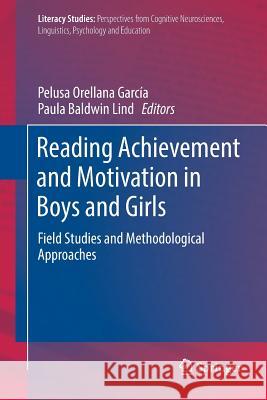Reading Achievement and Motivation in Boys and Girls: Field Studies and Methodological Approaches » książka
topmenu
Reading Achievement and Motivation in Boys and Girls: Field Studies and Methodological Approaches
ISBN-13: 9783030093617 / Angielski / Miękka / 2019 / 241 str.
Kategorie:
Kategorie BISAC:
Wydawca:
Springer
Seria wydawnicza:
Język:
Angielski
ISBN-13:
9783030093617
Rok wydania:
2019
Wydanie:
Softcover Repri
Numer serii:
000326817
Ilość stron:
241
Waga:
0.38 kg
Wymiary:
23.39 x 15.6 x 1.42
Oprawa:
Miękka
Wolumenów:
01
Dodatkowe informacje:
Wydanie ilustrowane











